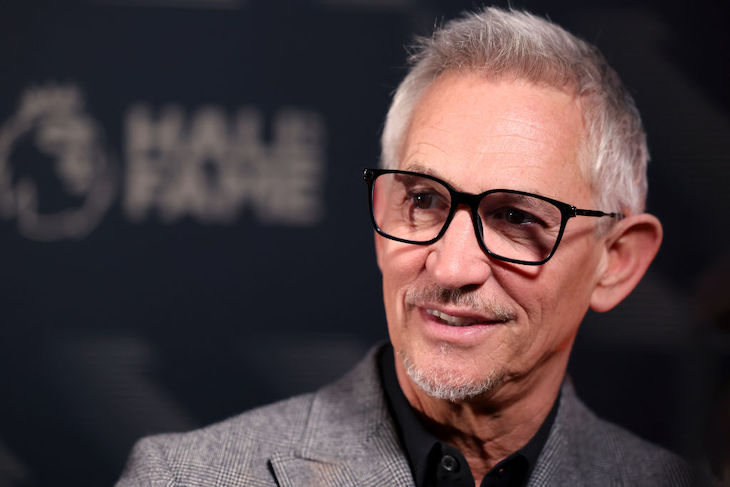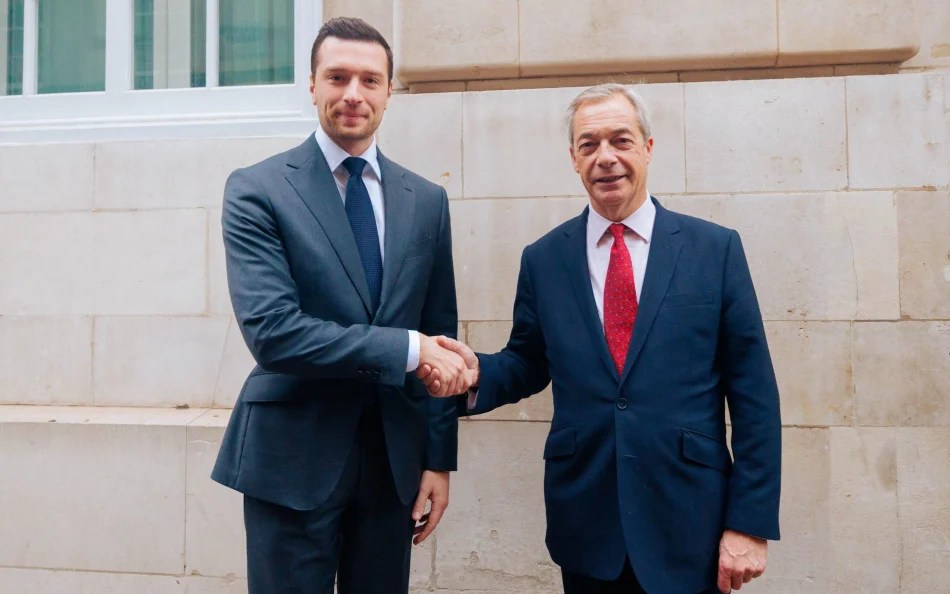It is hard to imagine the European football championship, which kicked off last night, was a big factor in Rishi Sunak’s decision to call a snap general election. But whether the footie was a consideration or not, the possibility that events in Germany might have some bearing on the result on 4 July is something he, and we, might now wish to consider. We may have no choice if the BBC’s X-addicted Gary Lineker, who will have a huge platform during the tournament, chooses to spout off about politics.
Footballers, unless they’re called Gary (Neville, Lineker), tend to keep tight-lipped about their politics
There is limited data to support a link between national sporting success/failure and political outcomes but there is one precedent worth examining. The general election of 1970 coincided with the World Cup in Mexico and it has long been speculated that England’s nightmarish quarter final exit at the hands of Germany changed both the national mood and the election result.
Two goals up with just over twenty minutes remaining, manager Alf Ramsey chose to make an ultra-cautious Southgate-ish switch, taking off Bobby Charlton to ‘rest his legs’ for the semis. England, and particularly reserve keeper Peter Bonetti, then contrived to gift Germany three goals and a shock turnaround victory. The game was just four days before polling day; at kick-off Labour were seven points up, but Ted Heath’s Tories went on to win by three per cent.
Dennis Healy revealed in his memoirs that in April a strategy meeting had been called at Chequers to discuss the possible consequences of an England defeat on the eve of polling day. Senior Labour figures such as Tony Crossland, local government minister and later foreign secretary, blamed the defeat partly on ‘disgruntled Match of the Day millions’, while sports minister Dennis Howell pinpointed Peter Bonetti’s third error of the game as being the very moment that ‘everything went wrong for Labour’.
It is not frivolous to speculate that a similar debacle befalling England a few days before 4 July could instil a similar angst and have some sort of influence on the election results. Ignominious defeat, especially if, as in 1970, agonisingly self-inflicted or otherwise traumatic (penalties?) would surely be a great boost to the opposition.
One can easily imagine the commentary – Sunak the unlucky general who can summon a downpour for the most important announcement of his career has worked his dysfunctional magic on the England football team too. It would reinforce and freshen up the trademark soundbites of Sunak’s chief rivals: ‘nothing works in this country’ (Farage) and ‘It’s time for change’ (Starmer).
On the other hand, if England are doing well and look like champions it could put a little wind in Sunak’ sails. And in their desperation – this is a government that claimed a win when illegal Channel crossings temporarily dipped due to bad weather – expect the Tories to tack to it. Even then though, it is not certain Sunak could bask in any reflected glory: there was never a greater away win than World War II and a more refulgent leader than Winston Churchill, but the electorate booted him out anyway.
There are more tangible, if prosaic, considerations that might be of interest to the psephologists. Assuming England (and theoretically Scotland) are still in the tournament come election day not only will tens of thousands of supporters be out of the country, the question of a serious distraction for armchair fans, and thus reluctance to leave the house, could play into the equations. Who this might advantage is something best left to John Curtice, but at a rough guess there are probably a higher percentage of football fans amongst Labour ranks than Tories.
Will the election influence the Euros and especially the performance of the British teams?
On the other (third) hand if Rishi Sunak’s message is starting to cut through and fears of what a Labour government might bring are starting to get purchase with the electorate, the last thing the Tories will want is a rival attraction to their not very compelling message. We know Rishi Sunak had been anxious about losing the attention of the British people, which may be one reason for the drama of the sudden election announcement. It worked, but whether he can keep the nations’ attention during a month of dramatic international football is another question. I think I’d rather watch Albania vs. Austria than another leader’s debate.
Another, less important, question is: will the election influence the Euros and especially the performance of the British teams? Footballers, unless they’re called Gary (Neville, Lineker), tend to keep tight-lipped about their politics, if they have any, but it’s hard to imagine Southgate’s woke warriors being true blue Tories. Still, the prospect of an imminent wealth gouging Labour government might be enough to put the players, with their handsome remuneration and suddenly vulnerable property portfolios, off their collective stride. Anyway, it’s a distraction.
And how about the TV coverage, and especially ‘Mr popular sentiment’ Gary Lineker? Will he be able to keep his eye on the ball and his commentary strictly neutral as his favourite Tories look to be heading for the exit door. I’d give him about a week.








Comments